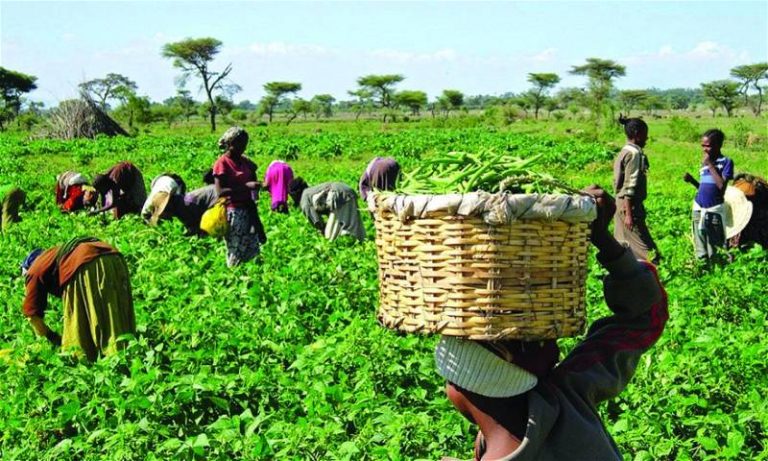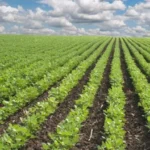Hope Amid Hunger: North-East Faces Food Crisis, Communities Lean on Aid, Resilience, Renewed Security

Despite a deepening food crisis affecting more than 3.7 million people in North-East Nigeria, efforts are intensifying across states to rebuild livelihoods, restore farmlands, and tackle malnutrition among vulnerable groups.
The International Committee of the Red Cross (ICRC) recently raised the alarm as the region entered its annual lean season. The humanitarian agency warned that food reserves were running out, and insecurity still restricts farming access for thousands of displaced households.
Many of the affected are smallholder farmers, now struggling to survive. In Dikwa, Borno State, local leader Modu Umar summed up the situation: “Right now, we face severe food shortages. Farming is the only solution to hunger.”
Another elderly farmer in Gajibo, Churi Ibrahim, described trekking for hours to reach his land a clear indicator of how far communities are willing to go despite the odds.
Recognising the urgency, the ICRC has stepped up support. Over 21,000 farming households have received seeds and tools for both rainy and dry seasons, aimed at boosting food production and improving nutrition. Community education and support for malnutrition treatment centres are also helping safeguard children under five, pregnant women, and nursing mothers.
In Yobe State, authorities are investing heavily to rebuild agricultural capacity. On July 2, the state distributed over $2.5 million to 101 communities under the World Bank-supported Agro-Climatic Resilience in Semi-Arid Landscapes (ACReSAL) initiative. The revolving loan is designed to support 7,340 direct beneficiaries including 2,483 women and stimulate climate-smart agriculture.
Executive Secretary of the Yobe State Emergency Management Agency, Mohammed Goje, noted that the government had also acquired 40 Massey Ferguson tractors for hire and flagged off agricultural input distributions to 1,000 farming households, including displaced persons.
Collaborations with international agencies have yielded further support. In partnership with the Swiss Agency for Development and Cooperation, farming inputs and livestock were distributed to 2,000 households in Geidam, Damaturu, and Tarmuwa, alongside training in animal husbandry.
In Bauchi, farmer-herder tensions have been curbed through government-imposed restrictions on roadside and rocky land farming, preserving grazing routes for pastoralists and minimizing clashes. Adam Sambo, chairman of the All Farmers Association in the state, applauded the move and urged compliance.
However, in Gombe State, some farmers say government support is yet to materialize. Maize farmer Gloria Sambo and others expressed frustration over delays in fertiliser distribution since its official flag-off. “It’s only through deliberate policy implementation that we can fight emerging food insecurity,” Sambo stated.
Meanwhile, Taraba State presents a rare success story. Security improvements have enabled thousands of farmers to return to their land for the 2025 wet season. In areas like Gassol, Takum, and Zing, communities that once fled violence are now farming again with renewed confidence.
“The soldiers and local vigilantes are patrolling regularly, and we feel safer,” said Danjuma Hikon, a farmer in Wukari.
These gains are credited to Governor Agbu Kefas’ rural peacebuilding strategy, including military deployments and community dialogue in flashpoints like Takum and Ussa. Stakeholders say his proactive leadership has rekindled hope for sustainable farming.
Still, incidents like the recent violence in Karim Lamido underline persistent threats. “Security is the first step,” said Angela Yohana, Programme Officer at FoodFuture Nigeria. “But farmers also need affordable inputs, extension services, and infrastructure to truly thrive.”
As humanitarian groups and state governments respond with a mix of aid, technology, and local partnerships, the resilience of North-East communities remains the region’s strongest asset one planting season at a time.









